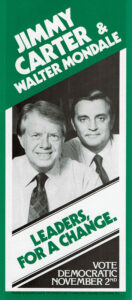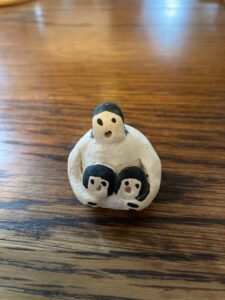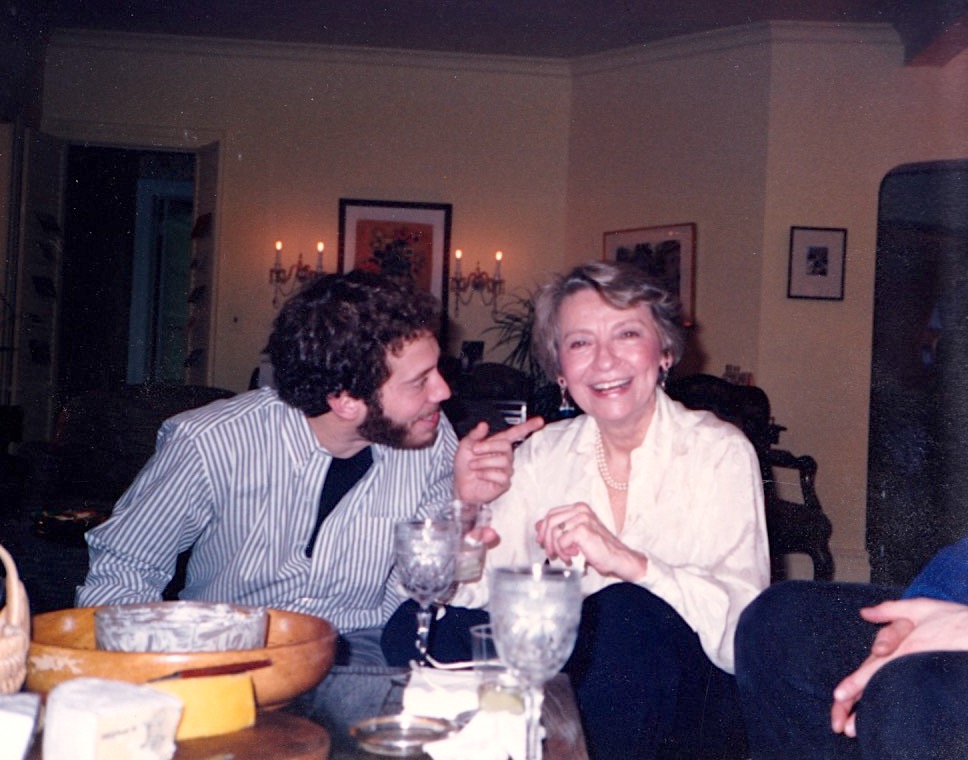In real life, it’s not so easy. When actors in life’s drama do dumb things, we can’t revise the narrative to avoid disaster.
We’ve all experienced the frustration. We’re reading a book or watching a movie or television show, and one (or several) of the lead characters in the story does something that’s just plain stupid. Blind to the peril before them, unwilling to heed the advice and warnings of others who know better, they rush headlong into danger, placing themselves and their loved ones at risk. We shout at the screen or curse the pages, knowing that terrible consequences will result from this patent idiocy, but on the characters go, compounding foolishness with carelessness and neglect and hubris until calamity befalls them. Deserved calamity. Chickens coming home to roost. Just desserts.
As a writer, I have to guard against doing this. Because the fact is, often bad choices by our lead characters can feed our narratives. “If only Character X would do this, then Characters Y and Z could do THIS, and wouldn’t THAT be cool!” Good editors — and I’ve worked with several — point out these moments and tell me to make certain Character X has a REALLY good reason for doing that not-so-smart thing. Because if they don’t have a good reason, this action will tick off my readers, putting them through that frustration I mentioned above.
And as an editor, I often have to flag moments in the manuscripts of my writers (or my clients) where they have led their protagonists down a foolish path, making them do things that serve the plot but not their own self-interest. “Make sure this is a reasonable, rational course of action,” I’ll say, “because otherwise this moment feels contrived, like something no clear-thinking person would do.”
Usually, in a fiction manuscript, the fix is fairly easy. We can get the characters to where the narrative needs them to be in a way that doesn’t feel so foolhardy and reckless. We can rewrite until it makes sense AND makes for a good story.
In real life, it’s not so easy. When actors in life’s drama do dumb things, we can’t revise the narrative to avoid disaster.
This past week saw climatologists record the four hottest days in human history. Monday’s record global temperature was measured by the U.S. National Centers for Environmental Prediction at 17.01 degrees Celsius (62.62 degrees Fahrenheit), exceeding the previous record, which was set back in August 2016, by about .09 degrees Celsius, or .16 degrees Fahrenheit. That might not seem like a lot, but for global averages that usually vary in tiny increments, this was a significant jump.
Monday’s record lasted one day. Tuesday was hotter. Wednesday was hotter still, and Thursday was even hotter than Wednesday. Thursday’s global average reached 17.23 degrees Celsius, exceeding Monday’s record by nearly .22 degrees Celsius, or more than twice the margin by which Monday’s global average exceeded the old record.
The records don’t end there. June 2023 was the hottest June on record. 2023 is shaping up to be the hottest year in recorded history. The last eight years have been the hottest eight years ever documented. And of the twenty hottest years measured by climate scientists since the mid-19th century, all of them — ALL OF THEM — have occurred in the first twenty-three years of this millennium. Ocean temperatures are at record highs, sea ice volume is at a record low.
Scientists across the globe used words like “terrifying” and “unprecedented” to describe last week’s temperatures, and several pointed out that while measurements of global temperature only go back to the beginning of the Industrial Age, evidence from other climatological data suggests that global temperatures could now be at levels not seen in more than 100,000 years.
And yet, none of the scientists interviewed by the major news outlets seemed overly surprised by what happened last week. Frustrated, yes. Surprised, not so much. And who can blame them?
When I was a senior in college, I took an environmental science class that was geared toward non-science majors: “Major Issues in Environmental Policy,” or something of the sort. During the course of the semester, our professor returned again and again to the threat to the planet posed by global warming and the unchecked increase in greenhouse gases being pumped into our atmosphere by automobiles, power generation, manufacturing activity, industrial agriculture, and other human endeavors. He warned of rising global temperatures and the resulting consequences, which included more extreme weather, greater risk of flooding, drought, and wildfires, shrinking glaciers, rising sea levels, etc., etc., etc.
Everything he predicted in that class has come to pass. Everything.
I took the class in 1985.
To be clear, last week’s record-setting heat was caused by a combination of factors, some related to human actions, others naturally-occurring. The spike in global temperatures resulted from a confluence of decades of climate change and the warming effect of this year’s powerful El Niño, a cyclical climate fluctuation caused by warmer than average currents in the Pacific. But researchers believe El Niño and its sister phenomenon, the climate cooling La Niña, have been occurring for thousands of years. Human-induced climate change in the X factor here.
And we, I am sorry to say, are the infuriatingly myopic characters I mentioned at the outset of this piece. We have been warned of the danger facing us time and again by people who know better — by climate experts, by NASA, by NOAA, by the Intergovernmental Panel on Climate Change, by the World Meteorological Organization, by a scientific community desperate to head off looming cataclysm. For half a century or more we have been told that this day would come, that our planet is hurtling toward a crisis from which it may not be able to recover.
We have delayed and denied. We have made excuses and engaged in the worst sort of incrementalism. We have watched as “once in a century” storms become routine, as horrifying wildfires blacken our landscapes and turn our skies apocalyptic shades of orange and brown. We have ignored all the warnings, and have thus saddled our children and generations to come with the responsibility of cleaning up our mess.
The events of last week merely confirmed what climate scientists have known for some time now. Climate disaster isn’t our future, it’s our present. It is here. At this point, knowing all we do, there is no good reason to ignore the science. Our own self-interest dictates that we must take action now. Because unless we, the characters in this tragedy, act immediately to change the course of humanity, to convince our political leaders that we care about our land, our water, ourselves, our children, our grandchildren, we will destroy the earth. An act of foolishness, of hubris, of neglect and carelessness and ultimate stupidity.
And who will be left to curse the pages of human history?









 In 1976, I was thirteen years old. I couldn’t vote, obviously, but I could work for candidates I liked, passing out pamphlets and such. That’s what I did in my little (at the time) moderately conservative (at the time) hometown in suburban New York. I stood on street corners in the commercial district of our village and I handed out leaflets for the Carter-Mondale ticket. “Leaders For A Change,” they read. A message that resonated after Watergate and the hapless administration of Gerald Ford.
In 1976, I was thirteen years old. I couldn’t vote, obviously, but I could work for candidates I liked, passing out pamphlets and such. That’s what I did in my little (at the time) moderately conservative (at the time) hometown in suburban New York. I stood on street corners in the commercial district of our village and I handed out leaflets for the Carter-Mondale ticket. “Leaders For A Change,” they read. A message that resonated after Watergate and the hapless administration of Gerald Ford. During our tour, we encountered many people selling pottery in front of their homes. And at one table, a mother displayed her wares beside those of her young daughter. I think the girl must have been around 7 or 8, give or take a year, and she had made a few small bowls, seed pots, and dishes. And she had made a tiny storyteller. As one would expect, it was quite crude compared to those we had seen for sale back in Albuquerque (we hadn’t yet been to Santa Fe or Taos), but something about the figure spoke to me. Maybe is was just that the storyteller was so cute. Or maybe it was that the girl herself was so proud of it. Or maybe I saw in this child’s early effort to follow in her mother’s footsteps something akin to my dream of becoming a professional writer. Whatever the reason, I asked the girl how much it cost.
During our tour, we encountered many people selling pottery in front of their homes. And at one table, a mother displayed her wares beside those of her young daughter. I think the girl must have been around 7 or 8, give or take a year, and she had made a few small bowls, seed pots, and dishes. And she had made a tiny storyteller. As one would expect, it was quite crude compared to those we had seen for sale back in Albuquerque (we hadn’t yet been to Santa Fe or Taos), but something about the figure spoke to me. Maybe is was just that the storyteller was so cute. Or maybe it was that the girl herself was so proud of it. Or maybe I saw in this child’s early effort to follow in her mother’s footsteps something akin to my dream of becoming a professional writer. Whatever the reason, I asked the girl how much it cost. That was a magical day in many ways. Acoma was as beautiful as we had been told, the pale red stone of the Pueblo seeming to glow beneath a deep azure sky, wooden kiva ladders rising above their structures and reaching toward the clouds. At one point, I spotted a rainbow in the clouds overhead — there was no rain, just the prismatic color, which appeared for a moment and then vanished. I think I was the only one on the tour who saw it. I believed that, together, the rainbow and my little storyteller were omens, signs that my dream would, in fact, come to pass.
That was a magical day in many ways. Acoma was as beautiful as we had been told, the pale red stone of the Pueblo seeming to glow beneath a deep azure sky, wooden kiva ladders rising above their structures and reaching toward the clouds. At one point, I spotted a rainbow in the clouds overhead — there was no rain, just the prismatic color, which appeared for a moment and then vanished. I think I was the only one on the tour who saw it. I believed that, together, the rainbow and my little storyteller were omens, signs that my dream would, in fact, come to pass. Two months later, I got my first contract from Tor Books. Children of Amarid wasn’t published for another three years — that first book needed a lot of editorial work. But I was on my way.
Two months later, I got my first contract from Tor Books. Children of Amarid wasn’t published for another three years — that first book needed a lot of editorial work. But I was on my way. Yesterday would have been my mother’s birthday — her 101st. I’ve written about her, and my dad, quit a bit in this space, though I haven’t written about my mother in a couple of years. She was smart and funny, classy and beautiful, quietly ambitious and deeply accomplished. She doted on her children and was, in turn, doted on by my father. She loved to travel and was passionate to the point of reverence about literature and the arts.
Yesterday would have been my mother’s birthday — her 101st. I’ve written about her, and my dad, quit a bit in this space, though I haven’t written about my mother in a couple of years. She was smart and funny, classy and beautiful, quietly ambitious and deeply accomplished. She doted on her children and was, in turn, doted on by my father. She loved to travel and was passionate to the point of reverence about literature and the arts.
